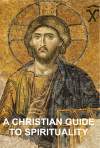Stephen W. Hiemstra's Blog, page 282
September 26, 2014
2 Corinthians 13: Passing the Test

Art by Stephen W. Hiemstra
Examine yourselves, to see whether you are in the faith. Test yourselves. Or do you not realize this about yourselves, that Jesus Christ is in you?– unless indeed you fail to meet the test! I hope you will find out that we have not failed the test. (2 Corinthians 13:5-6 ESV)
By Stephen W. Hiemstra
When I taught in the university, my final exam was never a surprise. The week before the final I would pass out ten questions as homework and announce that five of these questions would be on the final exam. Now these were not easy questions—my questions were designed to encourage my students to master the subject. My good students invariably typed up answers to all ten questions and simply turn all of them in on the day of the examination; my lazy students showed up empty handed and unprepared to answer the questions.
Which kind of Christian are you? Are you prepared for your exam?
Paul’s does not hold himself up as the judge over the Corinthians. Rather, he asks them to judge for themselves. What is interesting about the question is that if the Corinthians believe that their faith is real, then the evangelist that brought them to faith must also be real! And, the question of Paul’s apostolic authority would also be answered. Clearly, Paul has this interpretation in mind when he writes: I hope you will find out that we have not failed the test (v 6). The use of the plural (we) implies the answer to the question reflects well or badly on Paul himself.
Paul’s use of the weak-strong motif is a reminder of what Paul sees the answer to be. When we adopt a servant attitude with respect to others in the church, in other words are “weak”, then we are clearly strong in the faith. A defensive or haughty attitude, in other words are “strong”, would be the opposite. The example of Christ is crucial. Paul writes: For he was crucified in weakness, but lives by the power of God (v 4). In giving his life for our sins on the cross, Christ led out of weakness and provided an example for us all.
Christ’s example also motivates Paul’s leadership style and purpose in writing. He writes: For this reason I write these things while I am away from you, that when I come I may not have to be severe in my use of the authority that the Lord has given me for building up and not for tearing down (v 10). According to Paul, the proper use of authority is to build up, not to tear down.
In closing, Paul admonishes the church: rejoice. Aim for restoration, comfort one another, agree with one another, live in peace; and the God of love and peace will be with you (v 11). If the church is to be a foretaste of heaven, these admonitions must be practiced.


2 Corintios 13: Pasando la Prueba

Art by Stephen W. Hiemstra
Examínense para ver si están en la fe; pruébense a sí mismos. ¿No se dan cuenta de que Cristo Jesús está en ustedes? ¡A menos que fracasen en la prueba! Espero que reconozcan que nosotros no hemos fracasado. (2 Corintios 13:5-6 NVI)
Por Stephen W. Hiemstra
Cuando enseñaba en la universidad, mi examen final no fue una sorpresa. La semana antes de la final que se desmayaría diez preguntas como tarea y anunciar que cinco de estas preguntas sería en el examen final. Ahora no se trataba de preguntas-mis sencillas preguntas fueron diseñadas para animar a mis estudiantes a dominar el tema. Mis buenos estudiantes siempre mecanografiadas a las respuestas a las diez preguntas y simplemente se convierten todos ellos en el día del examen; mis estudiantes perezosos aparecieron con las manos vacías y sin preparación para responder a las preguntas.
¿Qué clase de cristiano eres? ¿Está usted preparado para el examen?
Pablo no se sostiene a sí mismo como el juez sobre los corintios. Más bien, él les pide que juzgar por sí mismos. Lo interesante de la cuestión es que si los Corintios creen que su fe es real, entonces el evangelista que los trajo a la fe debe también ser real! Y, la cuestión de la autoridad apostólica de Pablo también sería contestada. Claramente, Pablo tiene esta interpretación en mente cuando escribe: Espero que reconozcan que nosotros no hemos fracasado (v 6). El uso del plural (nosotros) implica que la respuesta a la pregunta refleja bien o mal en el mismo Pablo.
El uso de Pablo del débil-fuerte motivo es un recordatorio de lo que Pablo ve la respuesta a ser. Cuando adoptamos una actitud de servicio con respecto a otros en la iglesia, en otras palabras, son “débiles”, entonces estamos claramente fuertes en la fe. Una actitud defensiva o altiva, en otras palabras, son “fuertes”, sería lo contrario. El ejemplo de Cristo es crucial. Pablo escribe: Es cierto que fue crucificado en debilidad, pero ahora vive por el poder de Dios (4 v). Al dar su vida por nuestros pecados en la cruz, Cristo sacó de debilidad y ofreció un ejemplo para todos nosotros.
El ejemplo de Cristo también motiva el estilo de liderazgo de Pablo y el propósito por escrito. Él escribe: Por eso les escribo todo esto en mi ausencia, para que cuando vaya no tenga que ser severo en el uso de mi autoridad, la cual el Señor me ha dado para edificación y no para destrucción (v 10). Según Pablo, el uso adecuado de la autoridad es la de construir, no para derribar.
En el cierre, Pablo amonesta a la iglesia: alégrense, busquen su restauración, hagan caso de mi exhortación, sean de un mismo sentir, vivan en paz. Y el Dios de amor y de paz estará con ustedes (v 11). Si la iglesia es ser un anticipo del cielo, estas amonestaciones deben ser practicadas.

September 24, 2014
How Do We Know?

Art by Stephen W. Hiemstra
“All Scripture is breathed out by God and profitable for teaching, for reproof, for correction, and for training in righteousness, that the people of God may be complete, equipped for every good work.” (2 Timothy 3:16–17)
By Stephen W. Hiemstra
In the Koran, Christians are described as people of the book. Part of the reason for this distinction may be that the New Testament was the first text bound as a book. Books were cheaper to produce and more portable than scrolls, which continued to be used, for example, to record the Hebrew Bible. It is noteworthy that more New Testament texts have survived from ancient times than any other ancient manuscripts [1].
Athanasius suggested the twenty-seven books which now make up the New Testament in his Easter letter of AD 367 was later confirmed by the Council of Carthage in AD 397. The common denominator in these books is that their authors were known to have been an apostle or associated closely with an apostle of Jesus. Pope Damasus I commissioned Jerome to prepare an authoritative translation of the Bible into Latin in AD 382 commonly known as the Vulgate (Evans 2005, 162). The Vulgate remained the authoritative Biblical text for the church until the time of the Reformation when the reformers began translating the Bible into common languages.
During the reformation Martin Luther, for example, translated the New Testament into German in 1522 and followed with an Old Testament translation in 1532 [2]. Luther kept the twenty-seven books of the New Testament, but followed the Masoretic (Hebrew Old Testament) rather than the Septuagint (Greek Old Testament) in selecting books for the Old Testament [3]. The books left out became known as the Apocrypha. These books continue to distinguish the Catholic (Apocrypha included) from Protestant Bible translations (Apocrypha excluded) to this day. The list given below, which excludes the Apocrypha, is taken from the Westminster Confession:
OLD TESTAMENT
Genesis, Exodus, Leviticus, Numbers, Deuteronomy, Joshua, Judges, Ruth, 1 Samuel, 2 Samuel, 1 Kings, 2 Kings, 1 Chronicles, 2 Chronicles, Ezra, Nehemiah, Esther, Job, Psalms, Proverbs, Ecclesiastes, Song of Solomon, Isaiah, Jeremiah, Lamentations, Ezekiel, Daniel, Hosea, Joel, Amos, Obadiah, Jonah, Micah, Nahum, Habakkuk, Zephaniah, Haggai, Zechariah, Malachi
NEW TESTAMENT
Matthew, Mark, Luke, John, Acts, Romans, 1 Corinthians, 2 Corinthians, Galatians, Ephesians, Colossians, Philippians, 1 Thessalonians, 2 Thessalonians, 1 Timothy, 2 Timothy, Titus, Philemon, Hebrews, James, 1 Peter, 2 Peter, 1 John, 2 John, 3 John, Jude, Revelation
In our study of the Bible, Jesus’ attitude about scripture guides our thinking. Jesus said:
“Do not think that I have come to abolish the Law or the Prophets; I have not come to abolish them but to fulfill them. For truly, I say to you, until heaven and earth pass away, not an iota, not a dot, will pass from the Law until all is accomplished” (Matthew 5:17–18).
The Law of Moses refers to the Law (first five books of the Bible) and the Prophets (the other books). The last book in the Old Testament to be written was likely Malachi which was written about four hundred years before the birth of Christ. The last book in the New Testament to be written was likely the book of Revelation which was written around 90 AD.
The Bible represents the work of many authors, yet its contents are uniquely consistent. This consistency adds weight to our belief that the Bible was inspired by the Holy Spirit.
[1] The technical description is the Bible was the first publication to appear in widespread circulation as a codex (bound book) (Metzger and Ehrman 2005, 15). Stone (2010, 14) cites the existence of 5,500 partial or complete biblical manuscripts making it the only document from the ancient world with more than a few dozen copies.
[2] Luther completed the entire Bible in 1534 (Bainton 1995, 255).
[3] Luther translated the Apocrpha in 1534 but specifically said they were not canonical, just good to read (see: http://www.lstc.edu/gruber/luthers_bible/1534.php).
REFERENCES
Bainton, Roland H. 1995. Here I Stand: A Life of Martin Luther. New York: Penguin.
Evans, Craig A. 2005. Ancient Texts for New Testament Studies: A Guide to Background Literature. Peabody, MA: Hendrickson.
Metzger, Bruce M. and Bart D. Ehrman. 2005. The Text of the New Testament: Its Transmission, Corruption, and Restoration. New York: Oxford University Press.
Stone, Larry. 2010. The Story of the Bible: The Fascinating History of Its Writing, Translation, and Effect on Civilization. Nashville, TN: Thomas Nelson.


¿Como Sabemos?

Art by Stephen W. Hiemstra
“Toda Escritura es inspirada por Dios y útil para enseñar, para reprender, para corregir, para instruir en justicia, a fin de que el hombre de Dios sea perfecto (apto), equipado para toda buena obra.” (2 Timoteo 3:16-17 NBH)
Por Stephen W. Hiemstra
En el Corán, Cristianos son describido como la gente del libro. Parte de la razon esta por distincion puede ser por que el Nuevo Testamento estaba el texto primero hecho como un libro. Los libros eran más barato a producir y más portátil que pergaminos que continuaba a ser usado, por ejemplo, a grabar el Biblia Hebrea. Es de destacar que más textos del Testamento Nuevo has sobrevivido del tiempos antiguos que cualquiera otra manuscript antiguo [1] .
Atanasio sugeridó los vientisiete libros que hoy conforman el Nuevo Testamente en su Carta de Pascua en el año 367 cual estaba confirmado por el Consejo de Carthage en el año 397. El denominator comun en estos libros esta que sus autores eran conocido por haber sido un apostal o asociada estrechamente con un apostal de Jesus. Papa Dámaso I encargó Jerome a traducir la Biblia con autoridad al Latin en el año 382 conocido comúnmente como la Vulgata (Evans 2005, 162). La Vulgata quedó la Biblia autoritaria por la iglesia desde a época de la Reforma cuando los reformadores empezaban a traducir la Biblia en las lenguas de la gente.
Durante la Reforma Martin Lutero, por ejemplo, tradujo el Testamento Nuevo en Alemán en 1522 y siguió con una traduccion de el Testamento Antiguo en 1532 [2] . Lutero mantuvo el veintisiete libros del Testmento Nuevo, pero siguió el Masorético (la Biblia Hebrea) en lugar de la Septuaguinta (el Testamento Griego) en la selección de libros para el Testamento Antiguo [3]. Los libros no han incluido eran conocido como el Apocrifos. Estos libros continuaban a distinguir la Biblia Catolica (Apocrifos incluido) de las Biblias Protestantes (Apocrificos excluido) a este dia. El listo abajo, que excluido el Apocrificio, era tomado de la Confesion Westminster:
TESTAMENTO ANTIGUO
Génesis, Éxodo, Levítico, Números, Deuteronomio, Josué, Jueces, Rut, 1 Samuel, 2 Samuel, 1 Reyes, 2 Reyes, 1 Crónicas, 2 Crónicas, Esdras, Nehemías, Ester, Job, Salmos, Proverbios, Eclesiastés, Cantar de los Salomón, Isaías, Jeremías, Lamentaciones, Ezequiel, Daniel, Oseas, Joel, Amós, Abdías, Jonás, Miqueas, Nahum, Habacuc, Sofonías, Ageo, Zacarías, Malaquías
TESTAMENTO NUEVO
Mateo, Marcos, Lucas, Juan, Hechos, Romanos, 1 Corintios, 2 Corintios, Gálatas, Efesios, Colosenses, Filipenses, 1 Tesalonicenses, 2 Tesalonicenses, 1 Timoteo, 2 Timoteo, Tito, Filemón, Hebreos, Santiago, 1 Pedro, 2 Pedro, 1 Juan, 2 Juan, 3 Juan, Judas, Apocalipsis
En nuestro estudio de la Biblia, la actitud de Jesus sobre escritura guia nuestras pensamientos. Jesus dijo:
“No piensen que he venido para poner fin a la Ley o a los Profetas; no he venido para poner fin, sino para cumplir. Porque en verdad les digo que hasta que pasen el cielo y la tierra, no se perderá ni la letra más pequeña ni una tilde de la Ley hasta que toda se cumpla.” (Mateo 5:17-18 NBH)
La Ley de Moises se refere a la ley (los primeros cincos libros de la Biblia) y los Profetas (los libros otros). El último libro del Testamento Antiguo que escribir era probablemente Malaquías cual fue escrito mas o menos cuatrocientos anos antes el nacio de Cristo. La último libro del Testamento Nuevo que escribir era probablemente el libro de Apocalipsis cual fue escrito cerca el año 90.
La Biblia representa el trabajo de muchos autores, sin embargo, su contenido es única consistente. Esta coherencia añade peso que la Biblia fue inspirado por el Espiritu Santo.
[1] La descripción técnica es que la Biblia fue la primera publicación a aparecer en circulacion generalizada como codice (libro encuadernado) (Metzger and Ehrman 2005, 15). Stone (2010, 14) cita la existencia de 5,500 manuscritos en parciales o totales que lo hace el unico documento del mundo antiguo con mas de un par de docenas copias.
[2] Lutero completó la Biblia todo en 1534 (Bainton 1995, 255).
[3] Lutero tradujó el Apocrifos en 1534 pero dijo especificamente que ellos no fueron canonico, solo Bueno para leer (veo: http://www.lstc.edu/gruber/luthers_bible/1534.php).
REFERENCIAS
Bainton, Roland H. 1995. Here I Stand: A Life of Martin Luther. New York: Penguin.
Evans, Craig A. 2005. Ancient Texts for New Testament Studies: A Guide to Background Literature. Peabody, MA: Hendrickson.
Metzger, Bruce M. and Bart D. Ehrman. 2005. The Text of the New Testament: Its Transmission, Corruption, and Restoration. New York: Oxford University Press.
Stone, Larry. 2010. The Story of the Bible: The Fascinating History of Its Writing, Translation, and Effect on Civilization. Nashville, TN: Thomas Nelson.

September 22, 2014
What Should We Do?

Art by Stephen W. Hiemstra
“So God created man in his own image, in the image of God he created him; male and female he created them.” (Gen 1:27)
By Stephen W. Hiemstra
Have you accepted Christ into all aspects of your life?
Walking into an office, whose picture normally hangs on the wall? The picture on the wall usually depicts the one casting the vision of the company. It could be the founder, the current president, or a chief executive. Why? It is helpful to remind us who is in charge and what we are about.
Assume you are a new office manager. Suppose when your supervisor was out of the office, a stranger walked in and questioned your supervisor’s instructions, saying—you are in charge now: take it easy. Then, being naive, you declared independence, kicked the feet up on the desk, and slept all afternoon. What would happen when your supervisor returned? What would you think then if the supervisor, even as you are being fired and walked to the door, made a promise—when my oldest son comes, you can come back and he will make sure that stranger does not bother you anymore?
This is essentially the story of Adam and Eve. The story has three parts: creation with great expectations (hired), fall into temptation (fired), and promise of restoration through divine intervention (second chance).
Creation. Just like the business with the picture on the wall, in our hearts we have a picture of God because God created us in his image. This family resemblance gives us human dignity. We were created with great prospects and a bright future.
The emphasis in Genesis 1:27 is on being created in the image of God together with our spouses. We were created to live in families with one man and one woman. To prevent any misunderstanding, Adam and Eve were blessed, put in charge on earth, and given a mission: “Be fruitful and multiple.” (Gen 1:28)
Fall. God placed Adam and Eve in the Garden of Eve with just one restriction that came with a penalty: do not eat of the tree of the knowledge of good and evil under penalty of death (Gen 2:17). In deceiving Eve, Satan questioned God’s integrity saying that the penalty was a lie: you will not die (Gen 3:4). In giving into this temptation, Adam and Even sinned and rebelled against God. God then expelled them from the Garden of Eden. Left outside Eden, Adam and Eve faced life outside of God’s presence and the penalty of death.
Restoration. In God’s curse of Satan, he prophesied the coming of Christ. Satan’s usurped kingdom will be over-thrown by a descendant of Eve (Gen 3:15).
What does the story of Adam and Eve say about our identity? Tension arises in our lives because we do not live up to God’s expectations. Our dignity arises from being created in God’s image; yet, we sin and rebel against God. The Good News is that when Christ died for our sins, he overthrew the rule of Satan in our lives and restored our relationship with God, just as it was in the beginning.


Que Debemos Hacer?

Art by Stephen W. Hiemstra
“Dios creó al hombre a imagen Suya, a imagen de Dios lo creó; varón y hembra los creó.” (Gen 1:27 NBH)
Por Stephen W. Hiemstra
¿Has aceptado a Cristo en total los aspectos de tu vida?
¿Cuando andamos en una oficina, quien es la persona con el retrato en la pared? El retrato de la pared usualmente esta la persona quien creada la vision de la empresa. Tal vez esta el fundador, el presidente actual, o el executivo realmente en control. ¿Por que? Es util a recordarnos quien es en control y los objectivos que guia nuestro trabajo.
Presuma que usted este gerente nuevo de una oficina. Suponga que cuando tu jefe estaba fuera de la oficina, que tu estas visitado por un desconocido quien cuestiono las instrucciones de tu jefe, diciendo—tu tenias en cargo ahora—tomas la vida calma. Entonces, tu estas estupido, declara tu independencia, puso tus pies por el escritorio, y dormi por total la tarde. Que pasaria cuando su jefe regresa? Que va a pensar entonce si tu jefe, aunque el deja te ir y esta caminando te a la puerta, hace una promesa—cuando mi hijo major viene, tu puedes regresar y mi hijo va a asegurar que este estraño no te molesta mas?
Esencialmente esta es la historia de Adan y Eva. La historia tiene tres partes: creación con expectativas grandes (empleado nuevo), caen en tentación (despedido), y promesa de restoration a través de intervencion divina (segunda oportunidad).
Creacion. Exacto como la empresa con la retrato por la pared, en nuestros corazones tenemos una pintura de Dios por que Dios nos creó en su imagen. La aire de familia da nos dignidad humana. Se a creado nos con expectativas grandes y un futuro brillante.
El énfasis en Genesis 1:27 es a ser creado en la imagen de Dios con juntos con nuestro conyuge. Estamos creado a vivir en familias con un hombre y un mujer. A prevenir cualquiera confusion, Adan y Eva fueron bendecido, eran puesto en cargo de la tierra, y se les eran dado un objectivo: “Sean fecundos y multiplíquense”. (Gen 1:28 NBH)
La Caída. Dios puso Adan y Eva en la Jardin of Edén con solamente una limitacion que venir con un castigo: “no comerás, porque el día que de él comas, ciertamente morirás.” (Gen 2:17 NBH) En su decepcion de Eva, Satana cuestionaba la integridad de Dios diciendo que el pena estaba una mentira: “Ciertamente no morirán.” (Gen 3:4 NBH) En descendente a esta tentacion, Adan y Eva pecaron y rebelaron en contra Dios. Entonces Dios los expulsó de la Jardin de Edén. Fuera de Edén, Adan y Eva enfrentaron la vida fuera de la presencia de Dios y bajo de la pena de muerte.
Restauracion. Cuando Dios maldijo Satana, él profesó el viniendo de Cristo. El dijo que el reino usurpado de Satan estaria terminado por un descendent de Eva (Gen 3:15)
¿Que dice la historia de Adan y Eva sobre nuestra identidad? Tension levanta se en nuestras vidas porque no vivimos altura de las expectaciones de Dios. Nuestra dignidad origina en estar creado en la imagen de Dios; pero, nosotros pecamos y revelamos contra Dios. La buena noticia es cuando Cristo murio por nuestros pecados, derrocó el reino de Satana en nuestras vidas y restauró nuestra relacion con Dios, como estaba en el principio.

September 21, 2014
Prayer Day 45: A Christian Guide to Spirituality by Stephen W. Hiemstra

Available on Amazon.com
Almighty and loving God. We praise you for instituting and blessing our marriages. We thank you for the gift of children and for the way you transform us through and with our families. In the power of your Holy Spirit, grant us the wisdom and strength to care for our spouses and our children day by day. In Jesus’ precious name, Amen.

September 19, 2014
2 Corinthians 12: The Problem of Spiritual Pride

First Car in 1974
For the foolishness of God is wiser than human wisdom, and the weakness of God is stronger than human strength. Brothers and sisters, think of what you were when you were called. Not many of you were wise by human standards; not many were influential; not many were of noble birth. But God chose the foolish things of the world to shame the wise; God chose the weak things of the world to shame the strong. God chose the lowly things of this world and the despised things– and the things that are not– to nullify the things that are, so that no one may boast before him. (1 Corinthians 1:25-29 NIV)
By Stephen W. Hiemstra
In our passage today, the Apostol Paul addresses the church in Corinth which has a problem with spiritual pride. We get a hint of this problem in the many references that Paul makes to boasting—about half (27/57) of the references to boasting in all of scripture arise in the two letters of Paul to the church in Corinth. In only these ten verses of our passage today, he uses the term, boast, 4 times.
So, what is spiritual pride? What is boasting? (2X) In our passage today, Paul uses the Greek word, καυχάομαι, which means: to take pride in something, boast, glory, pride in oneself, brag (BDAG, 4171.1). Spiritual pride consists of bragging about our relationship with God.
So what does Paul say? Paul says:
I know a man in Christ who fourteen years ago was caught up to the third heaven.
Whether it was in the body or out of the body I do not know– God knows. And I know that this man– whether in the body or apart from the body I do not know, but God knows—was caught up to paradise and heard inexpressible things, things that no one is permitted to tell (vv 2-4).
But then he comments on this ecstatic experience and says: Although there is nothing to be gained, I will go on to visions and revelations from the Lord. (v 1). Nothing! In fact, he goes on to say: I will boast about a man like that, but I will not boast about myself, except about my weaknesses (v 5). Further, he says: Therefore, in order to keep me from becoming conceited, I was given a thorn in my flesh, a messenger of Satan, to torment me (v 7). But Paul does not stop there. Paul prayers to God 3 times to relieve him of this thorn in the flesh. And God gives a surprising answer to Paul’s prayer:
My grace is sufficient for you, for my power is made perfect in weakness. (v 9). In other words, God refuses to heal Paul of this thorn in the flesh, but instead offers Paul His presence—God’s grace. And Paul is content with this answer, saying: That is why, for Christ’s sake, I delight in weaknesses, in insults, in hardships, in persecutions, in difficulties. For when I am weak, then I am strong (v 10).
Has God given you a thorn in the flesh?
Most of us struggle with spiritual pride in one form or another. Our pride tells us that we are special even when it is not true. What brings together as a church is not our strengths, but our weaknesses. For not all of us are experts in the same things, but we are all in need of God’s forgiveness for our sins. So in my own case, my weakness in understanding and speaking Spanish allows me to find room in my life for God. Returning to the words of Paul: For when I am weak, then I am strong (v 10). Not in myself, but in Jesus Christ.


2 Corintios 12: La Problema de Orgullo Espiritual

First Car in 1974
Pues la locura de Dios es más sabia que la sabiduría humana, y la debilidad de Dios es más fuerte que la fuerza humana. Hermanos, consideren su propio llamamiento: No muchos de ustedes son sabios, según criterios meramente humanos; ni son muchos los poderosos ni muchos los de noble cuna. Pero Dios escogió lo insensato del mundo para avergonzar a los sabios, y escogió lo débil del mundo para avergonzar a los poderosos. También escogió Dios lo más bajo y despreciado, y lo que no es nada, para anular lo que es, a fin de que en su presencia nadie pueda jactarse. (1 Corintios 1:25-29 NVI)
Por Stephen W. Hiemstra
En nuestro pasaje de las Escrituras de hoy, el apóstol Pablo se dirige a la iglesia en Corinto, que tiene un problema con el orgullo espiritual. Tenemos una pista de este problema en repetidas referencia de Pablo a la jactancia—aproximadamente la mitad de todas las referencias (27/57) a la jactancia en la escritura total ocurrir en las dos cartas de Pablo a la iglesia de Corinto. Tan sólo en los 10 versiculos de nuestro pasaje de hoy, él usa la palabra, alarde, 4 veces.
Entonces, ¿qué es el orgullo espiritual? ¿Qué es jactancia? En nuestro pasaje, Pablo usa la palabra griega, καυχάομαι, que significa: a sentirse orgullosos de algo; jactancia; la Gloria; el orgullo de uno mismo; a alardear (BDAG, 4171.1). El orgullo espiritual consiste en alardear sobre nuestra relación con Dios.
Así que, ¿qué dice Pablo? Pablo dice:
Conozco a un seguidor de Cristo que hace catorce años fue llevado al tercer cielo (no sé si en el cuerpo o fuera del cuerpo; Dios lo sabe). Y sé que este hombre (no sé si en el cuerpo o aparte del cuerpo; Dios lo sabe) fue llevado al paraíso y escuchó cosas indecibles que a los humanos no se nos permite expresar (vv 2-4).
Pero luego se comenta sobre esta experiencia de éxtasis y dice: aunque nada se gane con ello (v 1). ¡Nada! De hecho, él va a decir: de mí no haré alarde sino de mis debilidades (v 5). Además, él dice: Para evitar que me volviera presumido por estas sublimes revelaciones, una espina me fue clavada en el cuerpo, es decir, un mensajero de Satanás, para que me atormentara (v 7). Pero Pablo no se detiene allí. Pablo oró a Dios 3 veces para relevarlo de este aguijón en la carne. Y Dios le da una respuesta sorprendente a la oración de Pablo: Te basta con mi gracia, pues mi poder se perfecciona en la debilidad (v 9). En otras palabras, Dios se niega a sanar a Pablo de esta espina en la carne, sino que ofrece Pablo Su presencia— la gracia de Dios. Y Pablo está contento con esta respuesta, diciendo: Por eso me regocijo en debilidades, insultos, privaciones, persecuciones y dificultades que sufro por Cristo; porque cuando soy débil, entonces soy fuerte (v 10).
¿Dios te ha dado un aguijón en la carne tuya?
La mayoría de nosotros luchamos con orgullo espiritual de una forma u otra. Nuestro orgullo nos dice que somos especiales, incluso cuando no es verdad (especialmente cuando no es verdad!). Lo que trae juntos como iglesia no son nuestros puntos fuertes, pero nuestras debilidades. Porque no todos somos expertos en todas las mismas cosas, pero estamos todos en necesidad del perdón de Dios por nuestros pecados. Así que en mi proprio caso, mi debilidad en la comprensión y el habla española me permite encontrar espacio en mi vida para Dios (2X). Citando de nuevo a Pablo: porque cuando soy débil, entonces soy fuerte, no en mí, sino en Jesucristo.

September 17, 2014
The Spiritual Discipline of Work
 Whatever you do, work heartily, as for the Lord and not for men, knowing that from the Lord you will receive the inheritance as your reward. You are serving the Lord Christ. (Colossians 3:23-24 ESV)
Whatever you do, work heartily, as for the Lord and not for men, knowing that from the Lord you will receive the inheritance as your reward. You are serving the Lord Christ. (Colossians 3:23-24 ESV)
Stephen W. Hiemstra, Luncheon for the Soul, Trinity Presbyterian Church, Herndon, Virginia, September 17, 2014
Prayer
Merciful father. Beloved Son. Spirit of Truth. Thank you for your presence among us this morning. Thank you for the food that we have eaten and the hands that prepared us. Open our hearts now to receive your word. Silence any voice in our minds except yours. Inspire the words spoken and illumine the words heard. In the precious name of your son, our Lord, Jesus Christ. Amen.
Opening Words
Who do you work for, really? (2X)
As some of you know, I used to work in construction during the summer as a student years ago. Of the many things that I did, a particular job in McLean, VA comes to mind when I think of those days. It was probably 1974 when I worked all summer to earn enough money to buy my first car—a used 1967 Volkswagen Beetle.
This job comes to mind because I met so many very colorful people and learned lessons that stuck with me. I used to say that this job convinced me that I wanted to finish college and never again work construction.
Unlike today when there are many Hispanics in construction work, back then most people working around McLean, VA in those days were Hillbillies from West Virginia. Many had police records. In my workgroup—all day workers—there were two African Americans—one was quiet and the other was noisy. The quiet one was arrested for robbing a bank at gunpoint; The noisy one used to chase me around with a razor.
My boss was not much better. He thought it was funny to instigate fights among the men. He went back to West Virginia one weekend and was arrested for getting drunk and shooting up someone’s trailer. Normally after payday, he would hang around, drink, and play cards until any workers present lost their entire paycheck. My boss was not much better.
In the middle of all this stuff, I got rather depressed. One morning I could not take it any longer. I skipped work and spent the day in the museum of art downtown. The next day my boss let me go. But first, he gave me some advice—at the next job site you go to, bring along your tools, and tell them that you are a carpenter’s helper. Later that morning, I did that on another job site and received not only a job but also a higher salary.
Who do you work for, really? (2X)
Scripture
Our scripture passage today is taken from Paul’s letter to the church at Colosse, an agricultural town about 110 miles east of Ephesus in what is now modern Turkey (Garland 1998, 17-33). Commentators believe that Paul wrote this letter from Rome where he was under house arrest. Paul writes this letter having heard that the church was faithful (vv 1:3-4), but has also been under pressure from false teachers, probably teachers trying to convince them to return to Judaism (vv 2:8-19). In response to this pressure, Paul writes to them about the sufficiency of Christ for salvation and for life (vv 1:17-20; 2:6-7).
In chapter 3 where our passage is then focuses on the sufficiency of Christ. Paul writes: Set your minds on things that are above, not on things that are on earth (Colossians 3:2 ESV). He then proceeds to explain how to do this in practice.
The immediate context of our verses is a section referred to by scholars as the household codes where Paul gives advice to husbands, wives, parents, children, and slaves—every member of an ancient household (vv 3:18-22). Our verses then provide the general principle or summary statement of Paul’s teaching:
Whatever you do, work heartily, as for the Lord and not for men, knowing that from the Lord you will receive the inheritance as your reward. You are serving the Lord Christ (vv 3:23-24).
In some sense, our attitude in our work summaries Paul’s letter and a key focus of our lives in Christ.
Who do you work for, really? (2X)
Spiritual Discipline
The gravity of idolatrous sin is obvious. If our loyalty, time, energy, and money point to what we really worship (Giglio 2003, 113), then the heart of idolatrous activity has to be our work—inside or outside the church; inside or outside the home. Work is often also a source of stress, fear, and anxiety.
Jesus understands. At one point, he presented a word picture of lilies and kings. Then, he advised: “do not seek what you are to eat and what you are to drink, nor be worried . . . Instead, seek his kingdom, and these things will be added to you.” (Luke 12:27–31) In other words, work is important; the kingdom of God is more important.
Work, as designed by God, is endowed with dignity. The Bible opens with God working—he creates (Welchel 2012, 7). God’s only son did manual labor! If Christ worked first with his hands as a carpenter, then working with our hands also has honor. Most of the disciples worked as fishermen—do you think they came home smelling like lilies? One of Jesus’ most radical acts was table ministry—he ate and drank with people who worked for a living (Matt 11:19).
The Apostle Paul’s attitude concerning work is significant in three ways. First, our work for human supervisors is also work for God! (Colossians 3:23–24). Second, many of the people that we work with and for are brothers and sisters—family—in Christ. How can anyone disrespect family? (Phlm 1:16). Impossible! Unthinkable! Third, Paul himself supported himself with manual labor as a tentmaker (Acts 18:2-3).
One of the church’s most important spiritual writers was a disabled veteran who worked in a kitchen. He hardly wrote anything at all. But he committed his work during the day to God in prayer. Brother Lawrence (1982, 23) wrote: “We should offer our work to Him before we begin and thank Him afterwards for the privilege of having done it for His sake.” He simply applied Paul’s advice: “pray without ceasing.” (1 Thessalian 5:17) And, the spiritual giants of his day beat a path to his door.
One measure of the idolatrous potential of work is to ask about identity. When you meet a new neighbor or someone at a party, how does your spouse identify you? Is it by your marital relationship, by your favorite sport’s team, or by your profession?
As Christians, our identity is in Christ. Work has dignity because we worship a God who demonstrated the dignity of work in creation and everything that can thereafter.
Who do you work for, really? (2X) As Christians, we know how to answer this question.
Prayer
Loving Father. We praise you for giving us useful things to do. We praise for equipping us for work in your church. Thank you for giving us new eyes to see our work, our supervisors, and our primary responsibilities. The harvest is ready; prepare us to join the laborers. In the name of the Father, the Son, and the Holy Spirit, Amen.
REFERENCES
Garland, David E. 1998. The NIV Application Commentary: Colossians/Philemon. Grand Rapids: Zondervan.
Giglio, Louie. 2003. The Air I Breathe. Colorado Springs: Multnomah Press.
Lawrence, Brother. 1982. The Practice of the Presence of God (Orig Pub 1691). New Kensington, PA: Whitaker House.
Whelchel, Hugh. 2012. How Then Should We Work? Rediscovering the Biblical Doctrine of Work. Bloomington, IN: WestBow Press.




